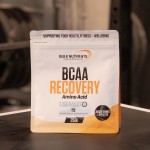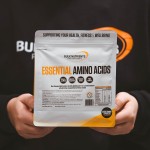The Ultimate Guide to Amino Acids

Welcome to the vibrant world of amino acids, the unsung heroes of your body's daily performance!
Whether you're a seasoned fitness enthusiast, an aspiring athlete, or simply someone curious about optimising your health, you're about to embark on an enlightening journey through the essential elements of life.
Amino acids may sound like scientific jargon but fear not; we're here to break them down (hah!) in plain and friendly terms. These microscopic powerhouses serve as the building blocks of proteins, orchestrating countless vital functions in your body.
And this guide goes way beyond the basics if you need. We'll also introduce you to the world of amino acid supplements and why quality matters. With a commitment to excellence and a passion for your health, we'll ensure you're well-equipped to make informed choices on your journey to peak performance.
So, whether you're a seasoned fitness guru or a newbie on the quest for wellness, fasten your seatbelts, and let's dive into the extraordinary world of amino acids.
Amino Acid Basics Explained
Right about now you might be wondering, "What exactly are amino acids, and why should I care?"
Well, we're about to shed some light on these tiny yet remarkable compounds.
Amino Acids: The Building Blocks of Life
Picture a skyscraper rising into the sky. It's an impressive structure, but it wouldn't exist without a solid foundation. In the same way, your body is a complex structure made up of proteins, and amino acids are the foundation on which these proteins stand.
They're often referred to as the "building blocks of protein." These amino acids come together like Lego bricks to create the proteins your body needs to function properly.
In total, there are twenty different amino acids, all of which play essential roles in your body's functions.
The Role of Amino Acids in Your Body's Overall Function
Within your body, amino acids act as the invisible workforce, orchestrating essential tasks each day.
They’re not just the building blocks of proteins; they're the architects of countless biochemical processes. These processes influence everything from muscle growth and repair to hormone production, immune function, organ maintenance and even mood regulation.
In essence, amino acids are the gears that keep the intricate machinery of your body running smoothly. They play a role in transporting nutrients, repairing tissues, and supporting vital organs. Without them, many of these functions would grind to a halt.
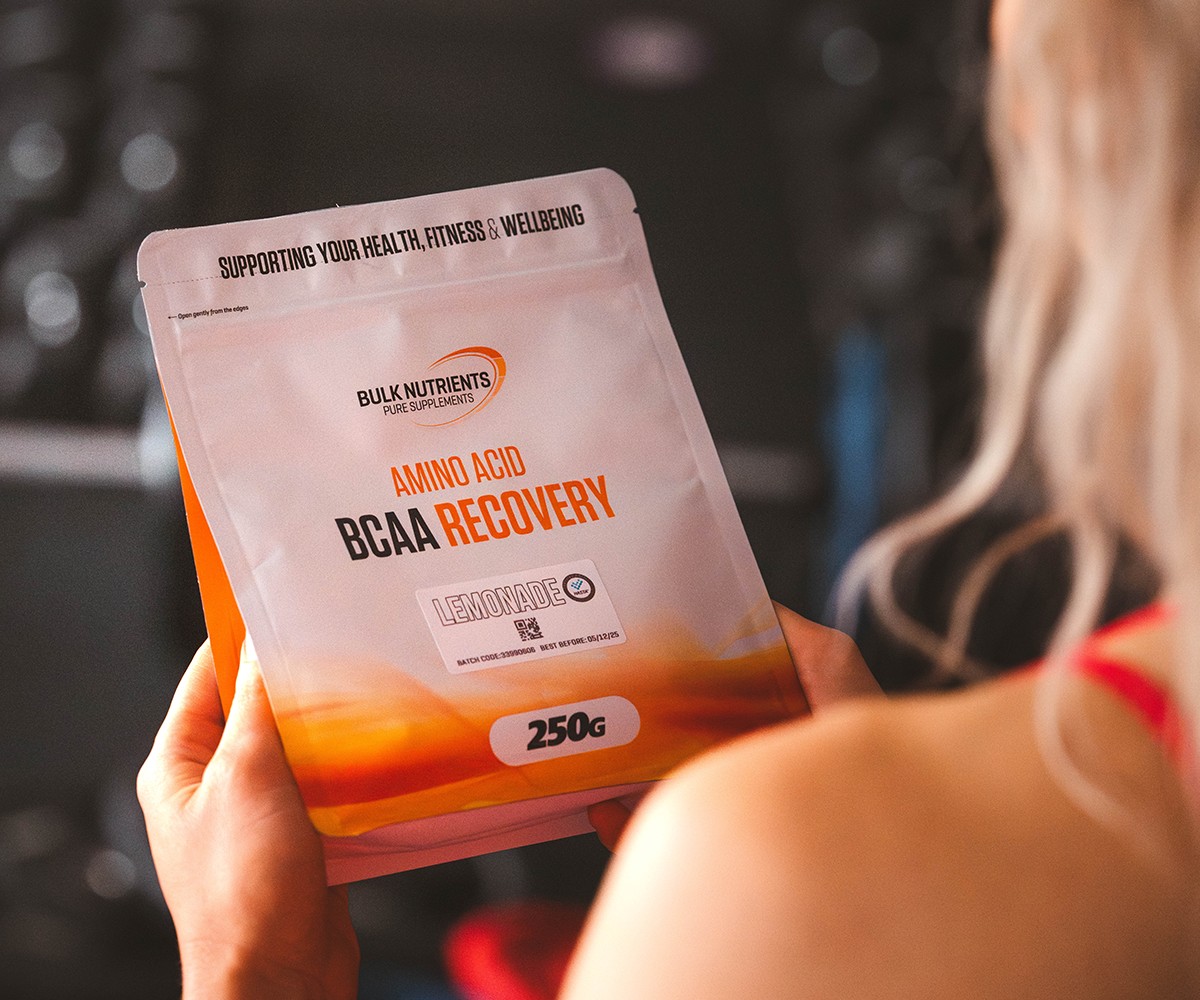
Essential vs. Non-Essential Amino Acids
Now, here's the interesting part: not all amino acids are created equal. Some your body can produce on its own, while others it can't, meaning you need to get them from your diet.
Let's break it down:
- Essential Amino Acids (EAAs): These are the ones your body can't make, so you must obtain them from the food you eat. They include L-Leucine, Valine, Isoleucine, Lysine, Threonine, Phenylalanine, Methionine, Histidine, and Tryptophan.
- Non-Essential Amino Acids: Your body can synthesise these amino acids, so you don't need to rely solely on your diet for them. They include Glutamine, Aspartate, Glutamate, Arginine, Alanine, Proline, Cysteine, Asparagine, Serine, Glycine, and Tyrosine.
Understanding the basics of amino acids is like having a roadmap for optimising your well-being. In the following sections, we'll explore the unique roles of different amino acids, their benefits, and how they can be incorporated into your daily routine.
So, if you've ever been curious about these little wonders, keep reading, because the journey has just begun.

Types of Amino Acids
Now we have a grasp of what amino acids are and why they matter, it's time to delve deeper into their world. It’s essential to understand that not all amino acids are created equal.
As mentioned above, there are two primary categories: essential amino acids (EAAs) and non-essential amino acids.
Each group serves a distinct role in maintaining your overall health.
Essential Amino Acids (EAAs): The Must-Haves
Imagine you're baking a cake, and you realise you're missing a crucial ingredient like flour or sugar. Without it, your cake just won't turn out right.
In your body's recipe book, these nine amino acids are the ones that you absolutely must get from your diet because your body can't produce them on its own.
Here are the 9 essential amino acids and their basic function in the body:
- L-Leucine: A key player in muscle protein synthesis and growth.
- Valine: Helps with energy production and muscle metabolism.
- Isoleucine: Supports muscle repair, immune function, and the formation of haemoglobin.
- Lysine: Plays a major role in protein synthesis, collagen production and calcium absorption.
- Threonine: Crucial for antibody production and maintaining proper protein balance.
- Phenylalanine: Serves as a precursor to important neurotransmitters and plays a role in mood regulation.
- Methionine: Aids in metabolism and detoxification processes.
- Histidine: Involved in the creation of histamine and supports immune response.
- Tryptophan: Precursor to serotonin, a mood-regulating neurotransmitter.
These essential amino acids are like the star players on a sports team, with each member contributing a unique skill to the game.
It's crucial to obtain them through your diet or supplements to ensure your body has the necessary building blocks for various essential functions.
Non-Essential Amino Acids: The Versatile Helpers
On the other side of the spectrum, you have the non-essential amino acids. While they're not "must-haves" from your diet because your body can produce them, they're certainly "nice-to-haves" to keep everything running smoothly:
Here's a glimpse of the non-essential amino acids:
- Glutamine: Supports immune function and gut health.
- Aspartate: Involved in energy production and cell signalling.
- Glutamate: Acts as a neurotransmitter in the brain and plays roles in memory and learning.
- Arginine: Important for blood vessel relaxation, circulation and maintaining healthy blood pressure.
- Alanine: Contributes to glucose production during periods of increased energy demands (e.g., exercise).
- Proline: Essential for collagen formation and wound healing.
- Cysteine: A precursor to the antioxidant glutathione, supporting detoxification.
- Asparagine: Involved in the synthesis of various biomolecules.
- Serine: Plays a role in the synthesis of proteins, nucleotides, and lipids.
- Glycine: Important for collagen, creatine, and glutathione production.
- Tyrosine: Precursor to important neurotransmitters like dopamine and adrenaline.
These non-essential amino acids are like the behind-the-scenes crew, ensuring that everything runs smoothly and efficiently in your body.
Branch-Chain Amino Acids (BCAAs): Building Blocks of Muscles
Branch-chain amino acids (BCAAs) are a subset of essential amino acids. They include L-Leucine, Valine, and Isoleucine, and are renowned for their role in muscle protein synthesis and energy production.
L-Leucine helps kickstart the muscle-building process while valine and Isoleucine contribute by providing energy for workouts and maintaining stable blood sugar levels. BCAAs have gained popularity as a dietary supplement for their potential to enhance exercise performance and promote muscle recovery.
Amino Acids Benefits
Now we’ve got a solid understanding of what amino acids are and how they function in your body, let's dive into the exciting part… their wide-ranging benefits.
Amino acids are like versatile tools in your health and fitness toolkit, and they’ve something to offer for everyone.

Amino Acids for Fitness and Performance Enhancement
Muscle Growth and Exercise Performance Enhancement
One of the most sought-after benefits of amino acids, particularly essential amino acids (EAAs) and branched-chain amino acids (BCAAs), is their potential to promote muscle growth and enhance exercise performance.
Here's how it works:
- Muscle Growth: Amino acids, particularly essential ones like L-Leucine, play a pivotal role in muscle protein synthesis. This means they're crucial for building and repairing muscle tissue. Whether you're looking to pack on muscle mass or recover from intense workouts, amino acids have your back.
- Reduced Muscle Soreness: BCAAs are renowned for their ability to reduce exercise-induced fatigue and improve endurance. They help decrease exercise-induced muscle damage, helping you to power through your workouts and bounce back quicker.
For a more in-depth look at which amino acids are best for muscle growth, take a look at our Key Amino Acids Needed for Muscle Growth
Amino Acids to aid Fat Loss
Amino acids can also play a pivotal role in achieving an ideal body composition, by balancing lean muscle mass and body fat.
- Lean Muscle Preservation: Essential amino acids, notably L-Leucine, protect lean muscle during weight loss. They signal the body to prioritise muscle preservation, which helps to maintain metabolic efficiency.
- Enhanced Fat Metabolism: Amino acids like carnitine improve fat metabolism. Carnitine aids the transport of fatty acids into mitochondria for energy production, facilitating the use of stored fat.
- Appetite Regulation: Amino acids, through their influence on appetite hormones, help manage hunger and promote satiety, making it easier to control calorie intake during weight loss efforts.
- Improved Insulin Sensitivity: Amino acids contribute to enhanced insulin sensitivity, allowing for more efficient nutrient utilisation and reduced fat storage. This improved sensitivity also supports better blood sugar management, which can be particularly beneficial for individuals aiming to control their weight.
Amino acids, by preserving lean muscle and enhancing fat metabolism, promote a balanced body composition. They aid in shedding excess fat while maintaining lean muscle mass, helping you achieve a balanced muscle-to-fat ratio and leaner physique.
Amino Acids for Overall Health and Wellbeing
Amino Acids to aid Immune Support
Several amino acids, including glutamine and arginine, play vital roles in immune system function. Glutamine is abundant in immune cells and is essential for their optimal performance.
Amino acids help fortify your body's defences, ensuring you stay resilient against common illnesses.
Support for Joints and Connective Tissue
Proline, an amino acid, is a key player in collagen production. Collagen is essential for the health of your joints and connective tissues. By actively participating in the body's natural processes, amino acids ensure the integrity of joints and the health of connective tissues, resulting in improved joint function, greater mobility, and overall tissue resilience.
Mood and Cognitive Function
Certain amino acids, such as Phenylalanine and Tryptophan, are precursors to neurotransmitters that influence your mood and cognitive function. By ensuring an adequate intake of these amino acids, you can support mental well-being and cognitive performance.
Hormone Regulation
Amino acids are essential to produce hormones that control various bodily functions. By maintaining proper amino acid levels, you support hormone balance, which impacts everything from metabolism to stress response.
Vital Organ Health
Amino acids play a crucial role in supporting the repair and maintenance of vital organs such as the liver, heart, and kidneys. They are instrumental in ensuring these essential organs function optimally, contributing to long-term health and well-being.
Energy Production and Fatigue Reduction
Amino acids also contribute to energy production, ensuring that you have the stamina to tackle your workouts and daily activities. When your body requires an energy boost, certain amino acids, like glycine and alanine, step in to provide it. This can help reduce fatigue and keep you feeling energised throughout the day.
Whether you're aiming for muscle recovery after a gruelling workout or seeking overall health improvements, amino acids are your reliable allies. Their benefits extend far and wide, making them a valuable addition to your wellness routine.
In the following sections, we'll take a closer look at specific amino acids and their unique contributions to your well-being.
Amino Acids and Diet
Let’s now delve into the role of amino acids in your diet. We’ll highlight key sources of essential amino acids and offer insights into balancing your intake for overall well-being.
Whether you're a meat enthusiast, a vegan, or somewhere in between, understanding amino acids' dietary significance can help you make informed choices to support your body's needs.
Complete Proteins
Certain foods offer a complete package of all nine essential amino acids, making them a valuable addition to your diet. Examples of these complete protein sources include beef, pork, poultry, fish, eggs, and dairy products.
By incorporating these foods into your meals, you ensure that your body has access to all the essential building blocks it needs for various biological processes.
But what if I don’t eat meat or animal products? Fear not! If you follow a vegetarian or vegan diet, you can still obtain all nine essential amino acids. Whole soy foods such as tofu, tempeh, miso and edamame quality as complete proteins, along with grains and seeds such as quinoa, hemp seeds, farro, buckwheat and chia seeds.
Also, by diversifying your food choices you can easily obtain all 9 essential amino acids. For example, combining rice and beans gives you a complete protein source.
By combining a variety of plant-based protein sources in your diet, you can obtain the full spectrum of amino acids your body requires.
Amino Acid Balance
Maintaining a balanced intake of amino acids is crucial for optimal health.
Ensuring a varied diet with a mix of protein sources helps you achieve the right amino acid balance, supporting various bodily processes, from muscle repair to enzyme function.
Amino Acids Supplementation
Maximising the Benefits of Amino Acid Supplementation
When it comes to using amino acids as supplements, it's essential to have a clear understanding of how they work and when to incorporate them into your routine. Here we'll explore the practical aspects of amino acid supplementation, helping you make informed choices about when, why, and how to use them effectively.
Amino Acids: Action Speed and Timing
After ingestion, amino acids are rapidly absorbed into the bloodstream, reaching peak concentrations in as little as 30 minutes. This quick response makes them ideal for specific purposes, such as enhancing muscle protein synthesis during or after exercise.
Pre or Post Workout Supplementation?
The choice between taking amino acids before or after training largely depends on your goals and preferences.
Pre workout amino acid supplementation can help kickstart muscle protein synthesis, potentially enhancing muscle growth and exercise performance.
On the other hand, post workout supplementation supports recovery by providing essential amino acids when your muscles need them most.
Experimentation can help you determine which timing suits you best.
Protein vs. Amino Acids: Choosing the Right Supplement
When it comes to dietary supplements, the choice between a general protein supplement eg. Whey protein and a specific amino acid supplement often boils down to your specific fitness and health goals.
Let's explore which option suits you better:
General Protein Supplement:
- Convenient and Concentrated: Protein supplements are easy to prepare and consume, and they offer a concentrated source of protein.
- Muscle Recovery and Growth: Protein supplements are commonly used to support muscle recovery and growth. They provide a high dose of essential amino acids that are rapidly absorbed, making them ideal for post workout nutrition.
- Weight Management: Protein supplements can be valuable for those aiming to manage their weight. They help promote a feeling of fullness, reducing overall calorie intake, and supporting muscle preservation during calorie restriction.
Amino Acid Supplements:
- Targeted Support: Amino acid supplements, like BCAAs or other essential amino acids, offer more focused benefits for muscle growth, exercise performance, and recovery. They contain specific amino acids in optimal ratios to achieve these goals.
- Fast Absorption: Amino acids are rapidly absorbed into the bloodstream, making them ideal for specific purposes, such as enhancing muscle protein synthesis during or after exercise. This quick response can be advantageous for those looking to maximise the benefits of their workouts.
So, which one is better?
The answer depends on your individual needs and goals.
If you're primarily looking for convenience and a concentrated source of protein to support muscle recovery, growth, and weight management, protein supplements are an excellent choice.
But, if you're aiming to maximise exercise performance, muscle growth, and recovery, amino acid supplements, especially those containing BCAAs, can provide more specific, rapid support.
They are best for those who want to optimise their workout results.
Ultimately, the decision between protein supplements and amino acid supplements hinges on your specific fitness objectives. Some individuals may even choose to incorporate both into their dietary regimen, depending on their daily nutritional requirements and training goals.

Choosing the Right Amino Acid Supplement
Amino acid supplementation has gained popularity for its potential to optimise various aspects of health and fitness.
When considering amino acid supplements, two primary types often come to the forefront: Branched-Chain Amino Acids (BCAAs) and Essential Amino Acids (EAAs).
Understanding the distinctions between them is crucial in determining which might be more suitable for your specific goals and dietary preferences.
Essential Amino Acids (EAAs)
EAAs, as the name suggests, are amino acids that are essential for the body but cannot be produced internally, so they must be obtained through diet or supplementation. They play a vital role in numerous bodily functions beyond muscle growth, including immune system support, hormone regulation, and overall health.
For those seeking a comprehensive amino acid supplement that covers all essential amino acids, EAAs are a suitable choice. They provide a more complete profile of amino acids, making them versatile for various health and fitness goals. EAAs can be beneficial for muscle growth, recovery, immune system support, and overall well-being.
In most cases, EAAs are considered superior to straight BCAA supplements. They offer a more comprehensive range of amino acids, supporting various bodily functions and protein synthesis. However, there are specific scenarios where BCAAs might be preferable.
Branched-Chain Amino Acids (BCAAs)
BCAAs consist of three amino acids: L-Leucine, isoleucine, and valine. These amino acids are known for their role in muscle protein synthesis, making them particularly popular among athletes and fitness enthusiasts. BCAAs are often taken as a supplement to support muscle growth, reduce muscle soreness, and enhance exercise performance.
If you're focused primarily on improving exercise performance and minimising muscle fatigue, BCAAs may be the supplement of choice. They can be especially beneficial when consumed before or during workouts, helping you power through challenging training sessions.
When BCAAs Shine
- Vegan Diet: For individuals following a vegan diet, plant-based protein sources can be deficient in BCAAs. In such cases, BCAA supplementation can help bridge this gap and support muscle health.
- Weight Loss Goals: BCAAs can serve as a valuable tool for those aiming to shed pounds. They provide a unique benefit: satisfying sweet cravings without the high-calorie content found in sugary beverages. This can be particularly useful during calorie-restricted diets.
Choosing the Right Option for You
When deciding between BCAAs and EAAs, and wondering, "What is the best amino acid supplement for me?" consider your specific objectives.
If you're seeking a comprehensive amino acid supplement that supports overall health and well-being, EAAs provide a broader spectrum of amino acids.
If your primary goal is to enhance exercise performance, reduce muscle soreness, or target muscle growth, BCAAs could align better with your needs. BCAAs are also great for those with specialised diets such as veganism and can be a useful ally in weight management efforts.
For a more in-depth look at these two supplements, check out this informative blog: BCAAs vs EAAs. Which comes out on top?
Shelf Life, Safety, and Side Effects of Amino Acid Supplementation
Amino acid supplements, like many other dietary products, often come stamped with a "best before" date. Understanding this date and how it relates to the safety and effectiveness of your amino acid supplements is crucial.
Amino Acids Shelf Life and Safety
Decoding the "Best Before" Date
The "best before" date indicates the period during which the amino acid supplement is expected to retain its maximum potency and freshness.
Beyond this date, the product doesn't necessarily become harmful or toxic, but its quality and effectiveness may start to diminish.
Determining Safety Post "Best Before"
You may wonder, "What happens if my amino acids are past their 'best before' date? Are they still safe to use?" The crucial part here is "best before", not "used by".
Our amino acids are very stable and can last almost indefinitely if stored correctly, meaning in a cool, dry place away from direct sunlight. Tests have shown that they are perfectly safe to use after the "best before" date unless they have been affected by excess heat or moisture.
To assess the safety post "best before", simply observe the product with your senses. Check for any unusual odours, discolouration, or changes in texture. If the supplements appear and smell as they did when you initially opened them, they are likely safe to consume.
In cases where you are concerned that they have changed appearance, you are welcome to contact us for assistance.
Assuring Stability and Safety
To ensure the stability and safety of amino acid supplements, follow these tips:
- Store Properly: Always store your supplements in a cool, dry place away from direct sunlight and humidity. This prevents moisture and heat from affecting their quality.
- Seal Bags Securely and Keep Seals Tight: Ensure your supplements are securely sealed after each use to prevent exposure to air, which can lead to oxidation and spoilage.
By following these guidelines, you can extend the shelf life of your amino acid supplements and maintain their safety and efficacy.
Amino Acid Side Effects
While amino acid supplementation offers various health benefits, it's essential to be aware of potential side effects and considerations:
Potential Side Effects
Amino acid supplements are generally safe when taken as directed. However, in some cases, high doses or excessive intake may lead to side effects such as nausea, diarrhoea, or gastrointestinal discomfort.
To avoid such issues, always follow the recommended dosage on the product label.
Amino Acids Pros and Cons
Amino acid supplementation offers various benefits, including supporting muscle growth, exercise performance, and overall health.
However, like any dietary supplement, they may not be suitable for everyone.
It's crucial to weigh the potential advantages against individual needs and goals to determine if amino acid supplementation is the right choice for you.
Pros of Amino Acid Supplementation
Amino acid supplements, especially essential amino acids (EAAs) and branched-chain amino acids (BCAAs), offer several benefits.
They support muscle growth, improve exercise performance, aid in post workout recovery, promote vital organ health, and can aid in weight loss/weight management.
Cons of Amino Acid Supplementation
Amino acids can affect individuals differently, and there may be potential side effects when consumed in high doses.
It's also important to note that amino acids should complement, not replace, a balanced diet.

Bulk Nutrients’ Amino Acid Supplements
Here at Bulk Nutrients, we take immense pride in ensuring the quality, safety, and integrity of all our supplements, including our range of amino acids. It's essential to us that our customers have complete confidence in the products they choose. Here's a glimpse into the measures we take to guarantee the excellence of our amino acid supplements.
Amino Acid Sources
Our amino acids, like 99% of the world's supply, are sourced from China. Notably, we share our suppliers with some of the most prominent and prestigious supplement and pharmaceutical brands globally.
Over the years, China has made significant strides in pharmaceutical ingredient production. With some of the world’s best practices, China has a very high standard of production of pharmaceutical ingredients.
Millions of dollars have been spent designing these state-of-the-art facilities, with hundreds of tonnes of raw goods being shipped to the USA and Europe every month. We know the biggest supplement companies in the world deal with our supplies as we’ve had joint meetings with them!
The most important thing to note is that at Bulk Nutrients we have exceedingly high standards of supply, with tight ‘supplier agreements’ in place which have many checks and balances. When combined with the checks and balances we have here in Australia (including significant investments in lab testing), we are greatly confident with our raw products.
These monitoring and regulation processes are not “one-offs” but a continual part of our quality assurance programs.
Quality Control Systems
Here at Bulk Nutrients, quality control is at the heart of our operations. We've established strict quality control systems that guarantee the quality of our products to end-users.
We deal with credible, international supplies, and our relationships with these suppliers are long-standing and trusted. We even visit these supplies in person once a year (except in 2020 due to COVID travel restrictions). In most cases, these visits extend to inspecting the factories where raw goods are produced.
Before accepting any goods from our suppliers, their specification sheets must meet our rigorous requirements. To further ensure quality and authenticity, we regularly conduct independent testing of specific amino acids through reputable laboratories in Australia, such as NMI or Biotest. Our commitment to quality extends to sending numerous samples of both raw and finished products for analysis each year.
We even employ an in-house FTIR Spectrometer to compare batches against internationally recognized standard patterns, allowing us to perform frequent checks on our products. This meticulous approach guarantees the purity and quality of the amino acids we provide.
Pharmaceutical Grade Quality Amino Acids
Our amino acids meet the high standards required for pharmaceutical use. The same suppliers who provide us with amino acids also supply some of the biggest pharmaceutical brands across Australia and the United States. This ensures that the amino acids you find in our products are of the same quality and purity as those used for medical purposes.
It's important to emphasise that there's no higher grade or purity level than Pharmaceutical/USP/BP- Graded ingredients. Irrespective of their country of origin, ingredients manufactured to pharmaceutical standards meet the same rigorous quality criteria.
Close Amino Acid Supplier Relationship
Contrary to the notion that our relationship with suppliers in China is distant, we maintain an incredibly close and trust-based partnership. As mentioned previously, we visit their factories in person annually and scrutinise all assay reports or 'Certificates of Analysis' (COAs) before accepting any batch.
Our commitment to transparency is unparalleled. Unlike many other companies, we are more than happy to provide spec sheets (COAs) to our customers upon request. We guarantee that the quality of our amino acids matches or exceeds anything you may find elsewhere, regardless of price.
We even welcome lab testing of any of our products. Our confidence in our products is such that your results will consistently match the COA provided by our suppliers, as expected from a pharmaceutical grade product.

Our Guarantee
At Bulk Nutrients, our dedication to delivering the highest quality amino acid supplements is unwavering, ensuring you receive high-quality products you can trust.
You can browse our range of Amino Acid Products here. If you are not 100% satisfied with the quality of our products, we are happy to offer a full refund.
Wrapping up Amino Acids
In this comprehensive guide, we've embarked on an exciting journey into the world of amino acids, unveiling their significance in maintaining overall health, supporting fitness goals, and enhancing well-being. From understanding the fundamental role of amino acids in our bodies to exploring the diverse types of amino acids, we've delved into the science behind these essential building blocks of life.
We've uncovered the unique benefits that amino acids offer, from fuelling muscle growth and optimising body composition to improving vital organ health and aiding in recovery. The knowledge gained here equips you with the tools to make informed choices about incorporating amino acids into your lifestyle.
As we conclude this guide, we hope you've gained a deeper appreciation for the role of amino acids in enhancing your well-being and supporting your goals. The journey doesn't end here; it continues as you apply this newfound understanding to your daily life, harnessing the potential of amino acids to optimise your health and vitality.
Thank you for embarking on this journey with us, and remember, your pursuit of a healthier, stronger, and more vibrant life begins with the building blocks of amino acids!

Nick is Bulk's Customer Service team's Technical Support Officer.
Which is our way of saying he's the guy whose job it is to answer your obscenely technical supplement questions.
More about Nick TelescaReferences:
- Glyn Howatson, Michael Hoad, Stuart Goodall, Jamie Tallent, Phillip G Bell, Duncan N French, Exercise-induced muscle damage is reduced in resistance-trained males by branched chain amino acids: a randomized, double-blind, placebo controlled study, Published 2012 Jul 12, DOI: 10.1186/1550-2783-9-20. https://pubmed.ncbi.nlm.nih.gov/22569039/
Related Blogs

Key Amino Acids Needed for Muscle Growth
Posted by Dayne Hudson
Estimated reading time: 5 minutes
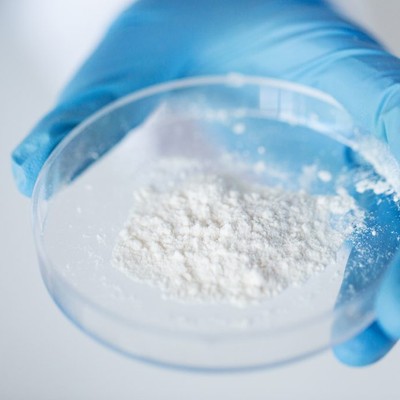
Bulk Nutrients 100% Pharmaceutical Grade Amino Acids
Posted by Nick Telesca
Estimated reading time: 7 minutes
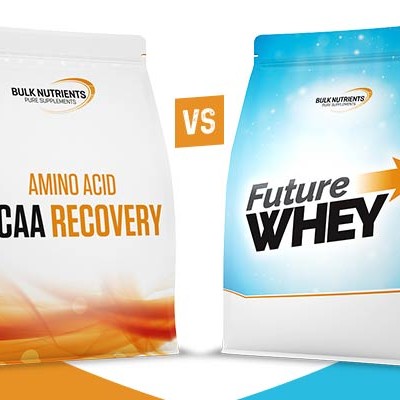
BCAAs vs EAAs. Which Comes Out on Top?
Posted by Jackson Peos
Estimated reading time: 7 minutes
